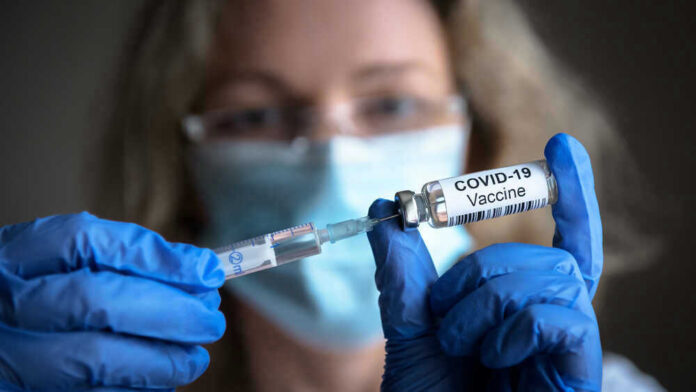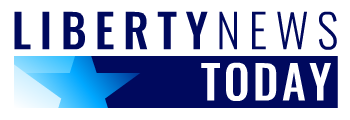
Pfizer’s COVID-19 vaccine sales have plunged to historic lows, exposing the consequences of top-down government mandates and the rapid reversal of pandemic-era policies that left taxpayers and American families footing the bill.
Story Snapshot
- Pfizer’s COVID-19 vaccine revenue plummeted as the U.S. government narrowed eligibility and halted mass funding.
- Taxpayer-backed pandemic spending gave way to targeted booster campaigns for only high-risk Americans.
- Pharmaceutical companies face major revenue losses and are forced to adapt after years of windfall profits.
- Government intervention and shifting guidance underscore the risks of centralized health policy overreach.
Government Guidance Shifts: From Pandemic Panic to Targeted Recommendations
This month, Pfizer reported that revenue from its COVID-19 vaccine, Comirnaty, had dropped sharply after the U.S. government and public health agencies narrowed vaccine recommendations. Once promoted for nearly every American, the guidance now targets only older adults and those with underlying conditions.
The end of the public health emergency in 2023 marked a turning point, as mass vaccination campaigns wound down and government support faded. This shift highlights how quickly federal priorities can change, leaving businesses and citizens to grapple with the fallout.
The transition from government-funded, emergency mass vaccination to a commercial, risk-based approach occurred rapidly. After peaking in 2022 with $37.8 billion in sales, Pfizer’s vaccine revenue plummeted to $5.35 billion in 2024.
By August 2025, the government announced a complete wind-down of mRNA vaccine funding, affecting more than twenty projects and signaling a final retreat from pandemic spending.
This left pharmaceutical giants adjusting to a drastically smaller market, with fewer opportunities and less guaranteed profit. The end of mass taxpayer funding underscored the dangers of unchecked government largesse and centralized decision-making during crises.
Pharmaceutical Fallout: Market Realities Replace Government Guarantees
The narrowing of vaccine recommendations exposed the pharmaceutical industry’s reliance on government intervention. Pfizer and its partner BioNTech are now forced to pivot, developing updated vaccines for a much smaller, high-risk population.
The end of mass government purchases and the shift to commercial sales marked a return to market realities, where products must compete and adapt without guaranteed taxpayer funding.
While boosters remain available for vulnerable groups, most Americans are no longer advised to get annual COVID-19 shots—an abrupt reversal from the policies of just a few years prior. This underscores the unpredictability and risk inherent in health care decisions driven by shifting government priorities.
In the short term, companies like Pfizer face deep revenue losses and must consider restructuring or diversifying beyond COVID-19. Stock prices and R&D budgets are already feeling the strain.
Longer term, the pharmaceutical sector may see reduced investment in mRNA technology outside emergency contexts, potentially limiting preparedness for future outbreaks.
For the broader public, the narrowing of access and recommendations raises concerns about personal choice and the wisdom of one-size-fits-all mandates that swept the nation during the pandemic. The episode serves as a cautionary tale about the costs of allowing government agencies to override individual liberty and market forces in the name of crisis response.
Pfizer COVID-19 vaccine sales tumble after government guidance on the shots narrows https://t.co/zw7pVTbxy3 pic.twitter.com/EnZ9k8O9Lm
— Orlando Sentinel (@orlandosentinel) November 4, 2025
Taxpayer Impact: Overspending, Accountability, and Lessons Learned
American taxpayers funded years of unprecedented pandemic spending, only to see federal authorities abruptly change course as public urgency waned. The wind-down of mRNA vaccine funding, totaling hundreds of millions of dollars, raises questions about government accountability and fiscal responsibility.
As new leadership in Washington prioritizes constitutional values, fiscal discipline, and the rollback of bureaucratic overreach, many Americans demand answers about how previous administrations handled pandemic spending. The Pfizer case is a stark reminder that when government expands its reach, the people are left to bear the consequences—be it through inflation, wasted resources, or lost freedoms.
The lesson for conservatives is clear: vigilance against government overreach and careful stewardship of taxpayer dollars are essential to protecting the nation’s future.
The fall COVID-19 vaccine season is starting slowly for Pfizer, with U.S. sales of its Comirnaty shots sinking 25% after federal regulators narrowed recommendations on who should get them. https://t.co/JKMo4iUOlK
— WWJ 950 (@WWJ950) November 4, 2025
As the pharmaceutical industry returns to market-driven solutions and government steps back from pandemic-era interventions, the experience serves as both a warning and a vindication for those who value limited government, free markets, and individual liberty.
The rapid shift in COVID-19 vaccine policy, funding, and recommendations reveals the risks of centralized, one-size-fits-all approaches and highlights the importance of transparent, accountable governance rooted in American constitutional principles.
Sources:
US Govt Winding Down Funding for mRNA Vaccine Development – DCAT
Pfizer and BioNTech Announce Topline Data Demonstrating – Pfizer Press Release
Pfizer COVID-19 vaccine sales tumble after government guidance narrows – FirstWordPharma
COVID-19 vaccines market worldwide – Statista















